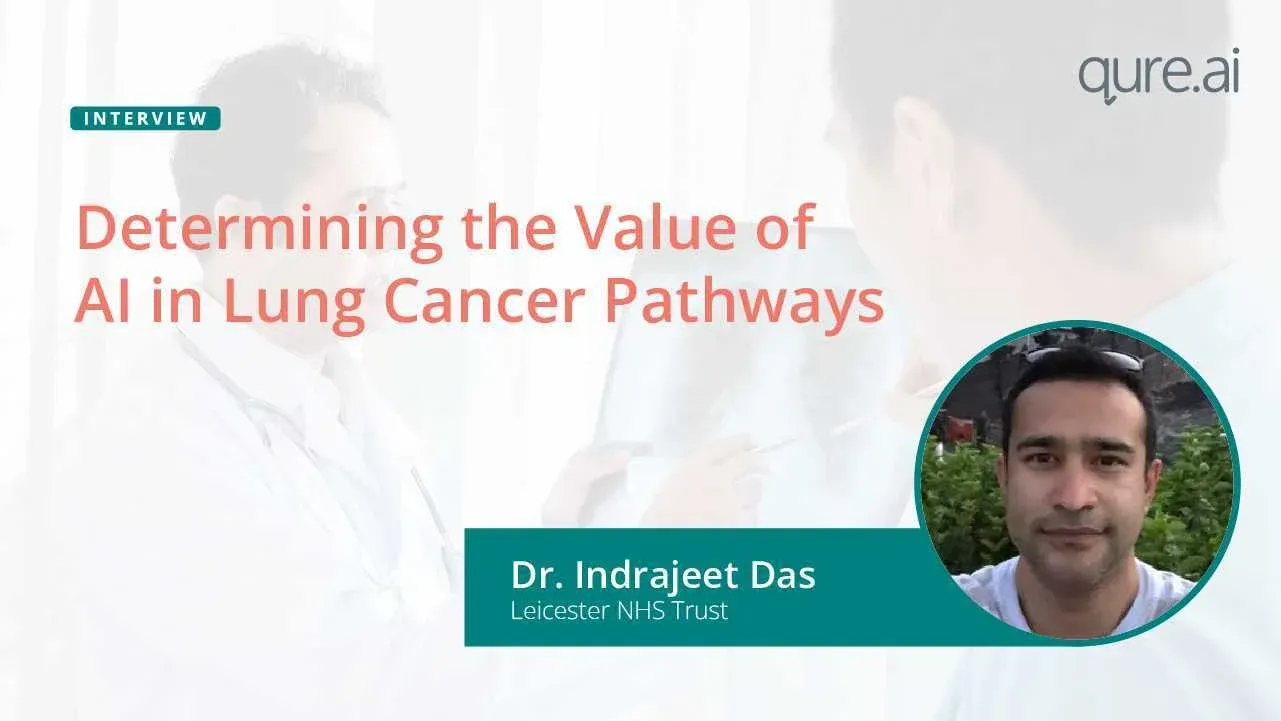Watch the video to know more.

Back
Lung cancer remains one of the most pressing challenges in modern healthcare, being the leading cause of cancer mortality in the UK with approximately 47,000 new diagnoses each year. What's particularly concerning is that over a third of these patients are diagnosed only after presenting as emergency cases - often at late stages when treatment options are limited. Dr. Indrajeet Das, a consultant radiologist at the University of Leicester Hospital, recently shared insights into how artificial intelligence could transform lung cancer pathways and potentially save lives through earlier detection.
The current situation is sobering: patients presenting as emergencies are five times more likely to die within a year compared to those referred through primary care. This stark difference underscores the critical importance of early diagnosis. However, several challenges stand in the way of improving detection rates.
The UK faces a significant shortage of radiologists, with one of the lowest numbers of specialists per 100,000 people in the European Union. This shortage has led many hospitals, including Leicester, to outsource up to 60% of their X-ray reporting. While outsourcing helps manage workflow, ideally hospitals would prefer to keep abnormal cases in-house for faster response and better continuity of care.
This is where AI enters the picture. Dr. Das and his team have been exploring how AI tools could help triage chest X-rays, distinguishing between normal and abnormal cases to ensure the most critical cases receive immediate attention. However, Dr. Das emphasizes that AI alone isn't enough - it needs to be integrated into a comprehensive, streamlined pathway for patient care.
The Leicester team developed an innovative "straight to CT" pathway, where chest X-rays showing suspected lung cancer are fast-tracked. Patients receive early morning CT scans that are immediately reported, allowing for rapid assessment and intervention if needed. This approach has already shown promising results, with a 25% relative reduction in emergency presentations despite an increase in overall lung cancer diagnoses.
To validate the potential of AI in this pathway, Dr. Das's team partnered with Qure.ai, conducting a retrospective analysis of 1,448 GP-referred X-rays. The results were impressive: the AI system showed excellent ability to detect abnormalities and correctly identified eight out of ten confirmed lung cancer cases. While it missed two subtle cases, the system's performance suggested it could be valuable as a prioritization tool.
The success of this initial validation has led to a larger multi-center study funded by SBRI (Small Business Research Initiative), involving several leading UK hospitals. The goal is to achieve the ambitious target of reporting all routine or urgent chest X-rays within 24 hours, potentially revolutionizing the speed of lung cancer diagnosis.
What makes this approach particularly promising is its holistic nature. Rather than simply deploying AI as a standalone solution, the Leicester team has focused on integrating it into a comprehensive pathway that includes rapid CT scanning, expert reporting, and prompt clinical assessment. This integrated approach addresses not just the initial detection but the entire patient journey.
While some radiologists remain skeptical about AI's role in healthcare, the early results from Leicester suggest that when properly implemented as part of a well-designed pathway, AI tools can help address the critical challenges of radiologist shortages while potentially improving patient outcomes through earlier detection and treatment of lung cancer.
As we await the results of larger prospective trials, one thing is clear: the future of lung cancer detection likely lies in the thoughtful integration of AI tools with streamlined clinical pathways, supported by dedicated healthcare professionals working together to catch cancer earlier and save more lives.
Channel Partners: GE Healthcare, Magentus